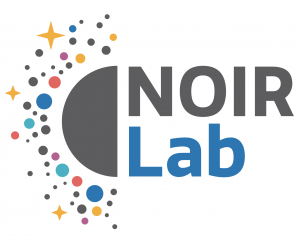Podcster: Rob Sparks. Guest: Christopher Kyba, Connie Walker

Title: Losing the Night Sky
Organization: NOIRLab
Links: https://www.facebook.com/NOIRLabAstro ; https://www.instagram.com/noirlabastro/ ; https://www.youtube.com/noirlabastro ; @NOIRLabAstro
Announcement by the International Dark-Sky Association: https://www.darksky.org/new-study-highlights-the-need-for-urgent-action-to-reverse-runaway-light-pollution/
Article from Science: https://www.science.org/doi/10.1126/science.adf4952
Full paper from Science: https://www.science.org/doi/10.1126/science.abq7781
Description:
Light pollution has been impacting our view of the heavens for many years. Globe at Night is a citizen science campaign that invites people around the world to measure their night sky brightness and contribute data to the Globe at Night database. A recent paper based on Globe at Night data shows the night sky is brightening more than previously thought based on satellite measurements. In this podcast, Connie Walker and Christoper Kyba discuss this new research.
Bio: Rob Sparks is in the Communications, Education and Engagement group at NSF’s NOIRLab in Tucson, Arizona
Christopher Kyba is a physicist who has been studying light in the outdoor environment since 2009. He works with data from many different sources, ranging from satellite observations and aerial photos to all sky imagery and observations with the human eye. He has led the development of a number of citizen science projects and tools, including Radiance Light Trends, the Loss of the Night app, My Sky at Night, and most recently the Nachtlichter (Night Lights) app.
Connie Walker is a Scientist (or astronomer) at NSF’s NOIRLab in Tucson, Arizona USA. She has been working to abate light pollution in different ways regionally, nationally and internationally over the last 20 years. She has been involved with revising local lighting laws to holding conferences nationally and internationally to being on the International Dark-Sky Association Board of Directors (twice) to holding leadership positions at the International Astronomical Union (and helping to form a resolution on people’s right to starlight). The launching point was helping to create the international citizen-science program, Globe at Night, that asks citizen scientists to rate their night sky brightness which compares star charts with different numbers of stars to what they see in the night sky.
End of podcast:
365 Days of Astronomy
=====================
The 365 Days of Astronomy Podcast is produced by Planetary Science Institute. Audio post-production by Richard Drumm. Bandwidth donated by libsyn.com and wizzard media. You may reproduce and distribute this audio for non-commercial purposes.
This show is made possible thanks to the generous donations of people like you! Please consider supporting to our show on Patreon.com/365DaysofAstronomy and get access to bonus content.
After 10 years, the 365 Days of Astronomy podcast is entering its second decade of sharing important milestone in space exploration and astronomy discoveries. Join us and share your story. Until tomorrow! Goodbye!

